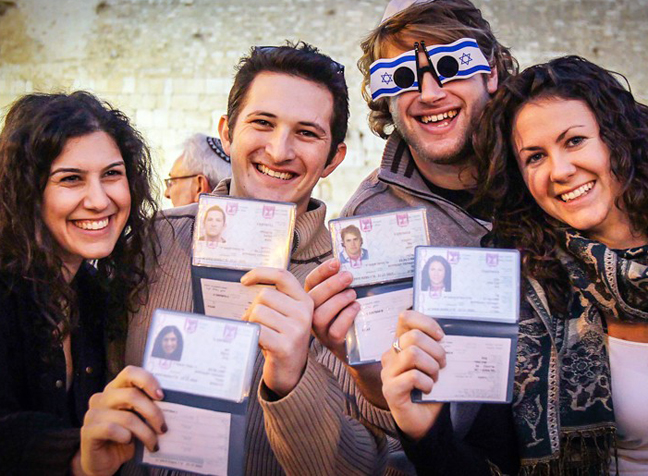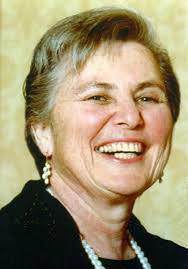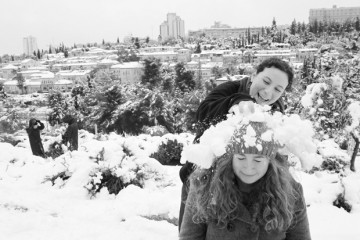Aliyah — Ascending

Leshon Ima – The Mother Tongue with Dr. Rachel Zohar Dulin
Yom Ha’atzmaut, Israel’s Independence Day, brings to mind the unique relationship between world Jewry and the land of Israel.
For Jews, to come to live in Israel from any place in the world — be it from the highest mountain or the largest valley — is an act of ascension, an aliyah.
In honor of the day, we’ll explore the meaning of the aliyah concept and its centrality in Jewish culture.
Aliyah is derived from the verb oleh, meaning go up, ascend and rise, which appears almost 900 times in the Bible.

Interestingly, the last word in the Hebrew Bible is veyaal, and go up, a term of encouragement from King Cyrus to the Jews of Persia to return to Israel and rebuild the Temple in Yerushalayim, Jerusalem (Ezra 1:3; II Chron. 36:23).
From this perspective, moving to live in Yerushalayim is neither a simple voyage nor just immigration. Rather, to move to Yerushalayim is an act of aliyah, an ascension.
Indeed, aliyah (pl. aliyot) is a central concept in Jewish culture. Going to Israel with the intent to settle there, means to make aliyah, to ascend, and the person who acts upon this calling is an oleh, an ascender.
Throughout our history there were constant waves of aliyot to Israel, aliyot that assured uninterrupted Jewish residency in the Land despite the exiles.
Short is the space to mention all the waves of aliyot to the Land, which began with Cyrus’ declaration (538 B.C.E) and proceeds to this day.
Suffice it to mention that Jews from Muslim lands made aliyot already in the 7th century. Jews from Europe, led by prominent rabbis, made several aliyot from the eighth century to the 18th century.
In the 19th and 20th centuries, aliyot from different corners of the world — America, Europe and places like Yemen, Persia, India, Ethiopia and Iraq — were based on the national quest for independent Jewish life in Israel.
As the 21st century unfolds, the state of Israel is still a magnet for Jewish aliyah.
Jews from France, Russia, Ukraine and even China continue the tradition of ascending to the Land.
Beyond its connection with the Land, aliyah is at the center of other Hebrew phrases. For example, the honorary call to the reading of Torah in the synagogue on Shabbat is called aliyah laTorah (Orach Chayim 25) and the pilgrimage to Yerushalayim on holidays is called aliyah leregel (Yoma 21).
To rise in rank is aliyah bedar gah and an increase in salary is called aliyah bamas koret. However, aliyah laaretz, going up to the Land, is by far a central motif in Jewish life.
On this Yom Ha’atzmaut, we look to Israel to continue as a haven for those who make aliyah and settle in her midst. We wish her to continue being a steadfast beacon of strength and pride for Jews worldwide.
Dr. Rachel Zohar Dulin is a professor of biblical literature at Spertus College in Chicago and an adjunct professor of Bible and Hebrew at New College of Florida.
To read the complete May 2016 Dayton Jewish Observer, click here.





